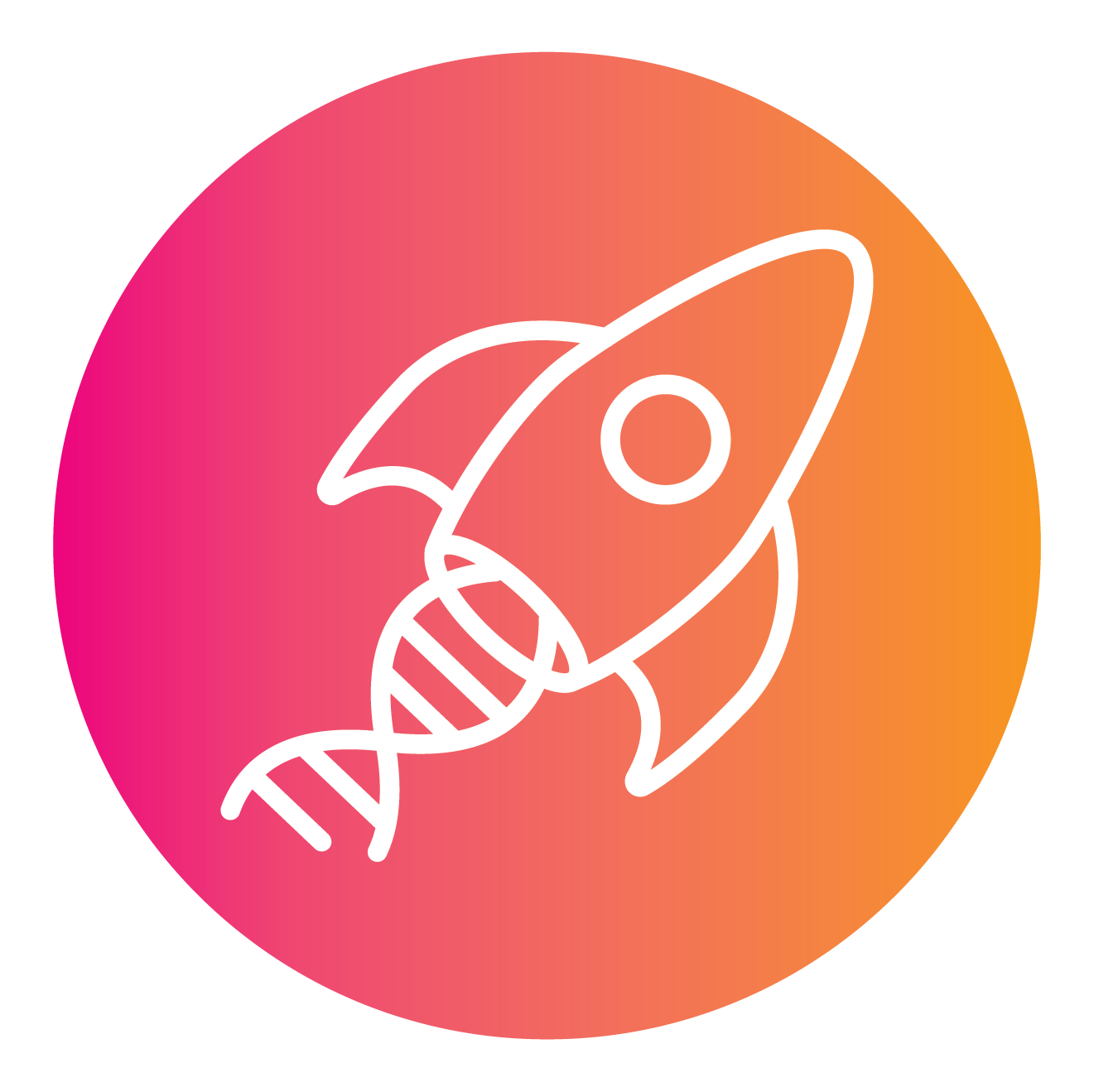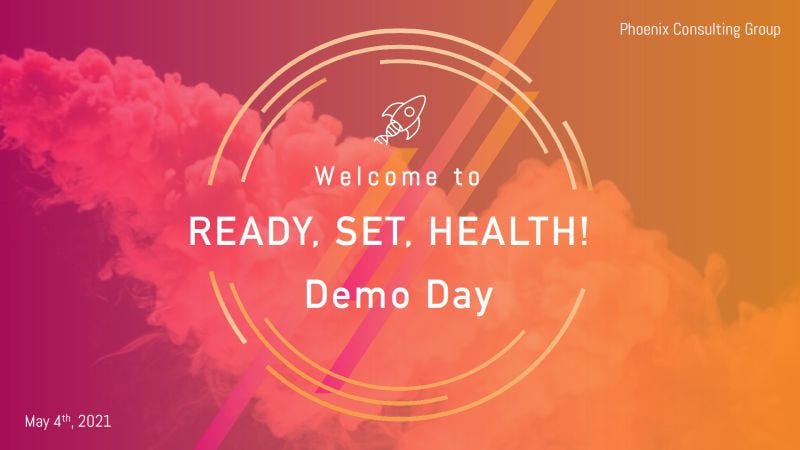Building Health Engine, a startup accelerator
The birth of a UC Berkeley-based healthcare startup accelerator. Co-founded and co-directed by myself and Chris Zou (who wrote this article with me).
Health Engine is a UC Berkeley-based startup accelerator dedicated to early-stage projects in healthcare. It is run by a core team of Phoenix Consulting Group members with support from staff at the Sutardja Center for Entrepreneurship and Technology. The program provides pre-revenue founders with support in the form of non-dilutive grants, an expansive network of industry experts and investors, workshops and roundtables, and access to Berkeley talent. We recently finished hosting our first cohort of startups, have recruited our second, and are working quickly to expand our offerings.
The following is an edited crosspost of an article written by myself and co-director + founder Christopher Zou for Phoenix Consulting Group’s Medium.
How did this project get started? What made you guys decide to build a healthcare startup accelerator?
M: According to the lore, the idea for Health Engine came to Chris when he was heartbroken on Christmas evening of 2020, tucked into a blanket to stave off a Michigan blizzard, watching the Korean drama Start-Up for the sentimentality.
C: Ok so, that’s not true. It was November, there was no blizzard, and I wasn’t heartbroken. But I was inspired by Start-Up. In the show, the main characters found an ML startup and their first stage is this accelerator called Sandbox. There’s this incredible scene where the CEO pitches for the first time and she connects their ML technology to changing the world. And I thought: wouldn’t it be insane to try and replicate that kind of energy in real life?
Of course, in real life you don’t get the soundtracks, lens flares, and instant success that you get in a drama. But I knew Blockchain@Berkeley had seen a lot of success from building the Blockchain Xcelerator and I knew from Phoenix projects that healthcare is a difficult industry to start a company in. There could be a lot of benefit to centralizing resources for startups the same way Sandbox did.
M: Chris told me about it later that week because we talked pretty often back then about startups and venture capital in the health/bio arena. I thought the idea had potential. The club we were a part of (Phoenix) was interested in expanding outside of just consulting too, and we thought this would be an excellent way to apply our depth of healthcare knowledge.
You don’t just go from nothing to an accelerator. What were some of the hiccups at the start?
M: To be honest, I think the start was surprisingly smooth. We were going for this really measured approach, where we wanted to validate that people cared about innovation in healthcare as much as we did, and the goal that first semester was just to put on a demo day. Demo days are events where startups pitch and investors come to listen—it’s that stage event that Chris was talking about from the drama.
We scheduled Health Engine’s first demo day for May, assembled a panel of judges, invited investors and startups from across the country, and raised a cash prize of $25,000 from our friends at SOMPO Digital Lab. Even though we had limited connections and lacked domain knowledge, Ready, Set, Health!—that’s what we called the event—had 20 startups, 30 VC firms, and 9 judges in attendance. It demonstrated that there were lots of people who cared about innovation in healthcare.
C: The real hiccups came in the fall, when we set out to build the accelerator for real. That was when we realized we had to have a much stronger idea of our niche in the current Berkeley startup landscape and a more specific value proposition than just “healthcare is hard to found a company in and we help.”
That’s actually what we were going to ask about next—what did you mean by it’s “hard to found in healthcare?”
M: I think it’s pretty informative to talk about the current Berkeley ecosystem for this too. Berkeley is an entrepreneurial university, right? Here at Cal, there’s lots of general support for startups through accelerator programs like CITRIS Foundry and SkyDeck. If you’re founding in a highly specialized industry like biotech, maybe you want to be part of a program where your peers and mentors are all in the field—that’s why we have programs like QB3, Nucleate and the Bakar BioEnginuity Hub.
C: Healthcare is the highly specialized of highly specialized industries—partly because it can involve some nasty technical challenges, but mostly because it’s a $2 trillion dollar behemoth where the sales cycles are slow, data is siloed, technology is late, and regulation complicated. A lot of the reasons for this are very well-intentioned: when you build in healthcare, the stakes are high. On the other hand, the challenges involved do make founding in healthcare really, really hard.
So you think you’d want, therefore, a highly specialized program for founders in health. But like most schools, Berkeley doesn’t have many established programs that aid healthcare founders. Given the importance of university ecosystems in churning out startups and talent for startups, this is a big barrier! It’s this lack of engagement and healthcare’s natural challenges that make founding in healthcare hard.
But founding in healthcare is still worth it.
M: In spite of these challenges, healthcare is the place to be right now. Investors know it too, having put in billions of dollars into startups in the digital health space in 2021. This is a result of the COVID-19 pandemic’s bringing an almost overnight transition to digital health and telehealth, and encouraging innovators to apply the last twenty years’ advances in tech to the many problems plaguing healthcare. These problems range from poor customer experience, to rising costs, to a lack of data visibility, and many more.
So walk us through exactly what Health Engine does for startups.
M: In the fall of 2021, we selected four startups for our first cohort. Each Monday we held a roundtable session, where startups were introduced to a wide range of industry experts. Then, the companies discussed updates from the previous week, celebrated wins, and asked questions to one another. We worked hard to develop a sense of community between our startups.
On Wednesdays we held a workshop, where an industry expert, investor, or successful founder would give a talk on anything from product development to navigating regulatory challenges in healthcare to developing a superstar pitch deck.
At the end of the cohort in January 2022, we held our demo day, where we invited dozens of investors to hear our companies’ pitches.
OK—and where is Health Engine going?
C: Alongside the process, we built up partnerships to provide grant funding, office space, and clinical partners, along with a recruitment pipeline to put startups in contact with Berkeley students. We’re looking to lean pretty hard on these new offerings in the next few months. This next cohort (which we’re recruiting for right now!) we also plan on hosting a student recruiting event and co-hosting mixers with our friends at Nucleate.
M: Health Engine is looking forward to providing special support for startups in our larger Berkeley community too, with non-dilutive grants available ranging from $25,000-$50,000 for relevant founding teams. It’s going to be a big year: more startups, more events, and more fun!
C: And most importantly, Health Engine is here to find and propel those startups—like the one in Start-Up—that will change the world.
Special thanks to Chris for co-founding and co-directing Health Engine with me, and for co-writing this article.
Chris previously worked at Datavant and LinkedIn and is broadly interested in aging, digital biology, and healthcare policy. In his free time, Chris plays guitar, runs, and eats a lot of food. Read his writing at Long Exposures and follow him on Twitter @chriswzou.



